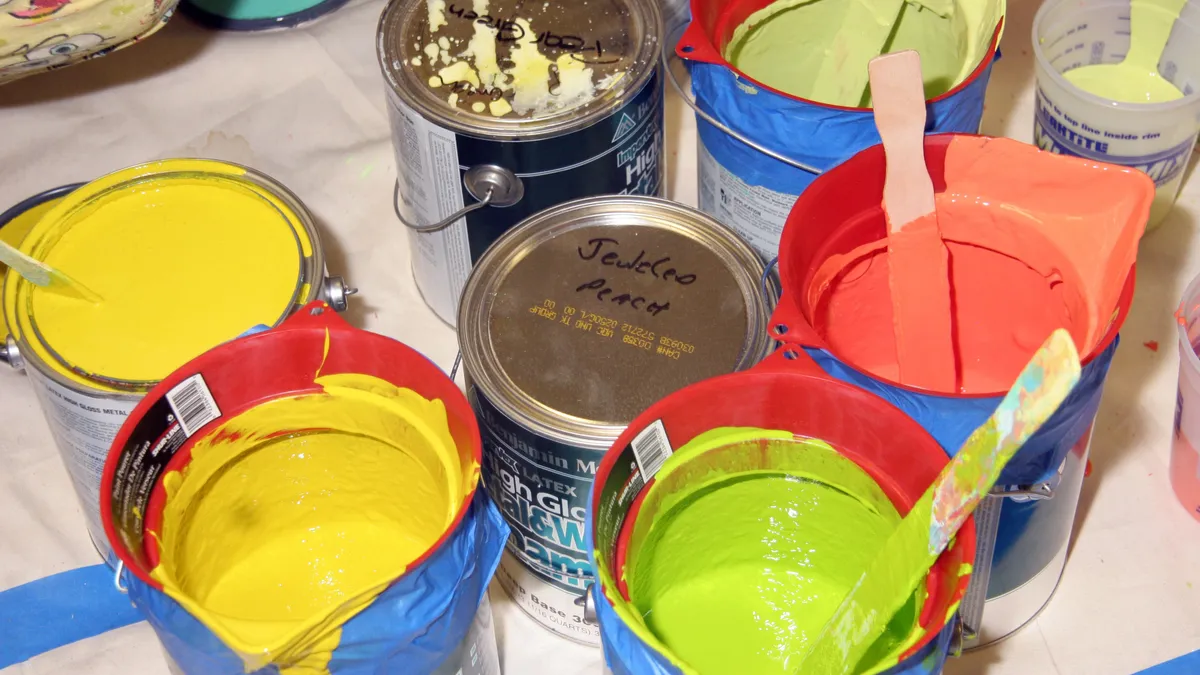Dive Brief:
- Paint supplier RPM International has purchased a large chemical manufacturing facility in Corsicana, Texas, to strengthen its supply chain and increase resin production amid global shortages, the company announced in September.
- The 178,000 square foot plant purchased from ChampionX Corporation will help add capacity of alkyd resin, a key material used in the company's Rust-Oleum paint, CEO Frank Sullivan said on an October earnings call. Companies are seeing major shortages of the material after an explosion at a major producer in Ohio shut down a supplier responsible for "roughly 30% of the alkyd resins in North America," Sullivan said.
- While the plant will make RPM's supply chain more resilient, Sullivan said it's not meant to replace the company's main suppliers. "Our core suppliers and our supply chain isn't changing."
Dive Insight:
Manufacturers were left scrambling to increase production of resins after a winter storm in Texas earlier this year shut down production at the majority of the state's petrochemical plants.
"Epoxy resins are double what they were a year ago. Acetone is up 90%," said Sullivan. "And that's to the extent that we can get them."
The company lost the equivalent of nearly 300 production days across facilities during the first quarter of 2022 due to supply chain disruptions. That's more than what was "lost due to COVID-related shutdowns in last year's first quarter," Sullivan said.
Shortages have hit the paint industry especially hard. Resin is commonly used as a binder in paint, with the material making up 44% of the global coatings raw materials market as of 2017, according to ChemQuest Group.
RPM has been particularly affected by alkyd resin shortages caused by a lack of raw materials and an Ohio plant explosion that's disrupted production. The company is more reliant on alkyd resins than some of its competitors, as the material is critical to spray paints and other "small project paints," Sullivan said.
Resin shortages could persist for up to three years until production capacity catches up with demand, according to a forecast from AlixPartners.
The disruptions to the supply chain have pushed more companies to find substitute materials and diversify their supplier base. Sullivan said RPM has switched from petroleum-based resins to organic and bio-based resins when possible, and is also "sourcing some raw materials offshore that previously we had not been."
RPM's Texas facility also shows how some companies are also trying to increase capacity themselves. The new plant, combined with RPM's efforts to find alternative supply, will ease shortages somewhat going into November, Sullivan said.
The plant will "add long-term resilience in our supply chain, improve fill rates and more easily expand production of a number of our high-growth product lines in the coming quarters and years," Sullivan said.













